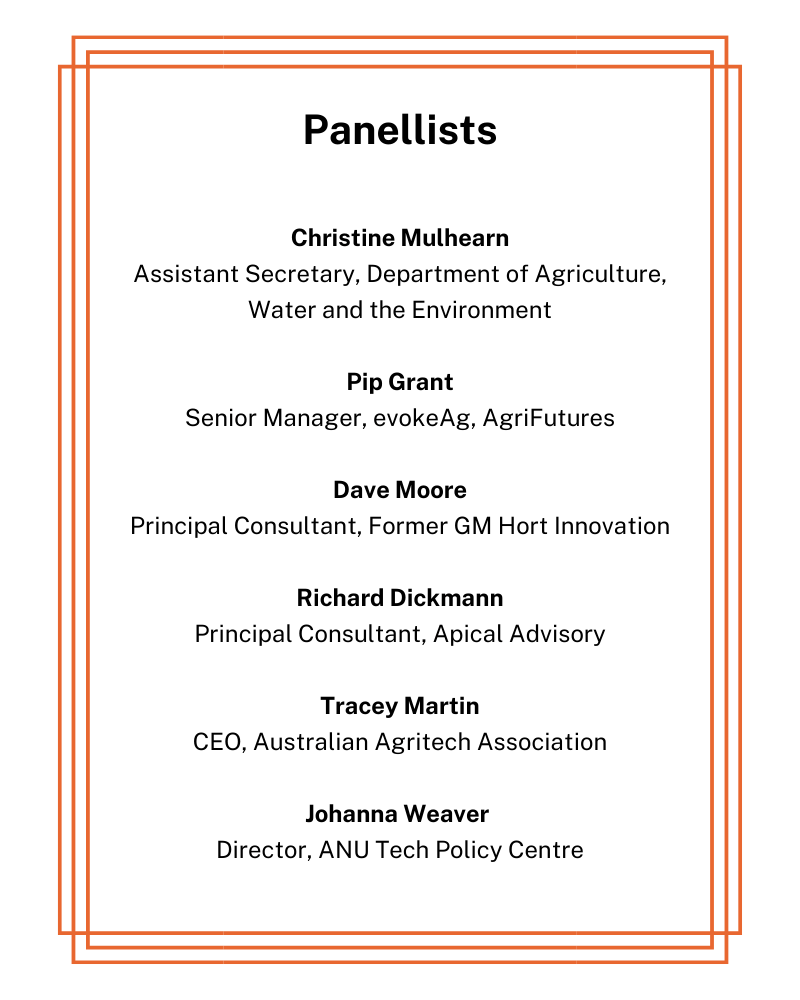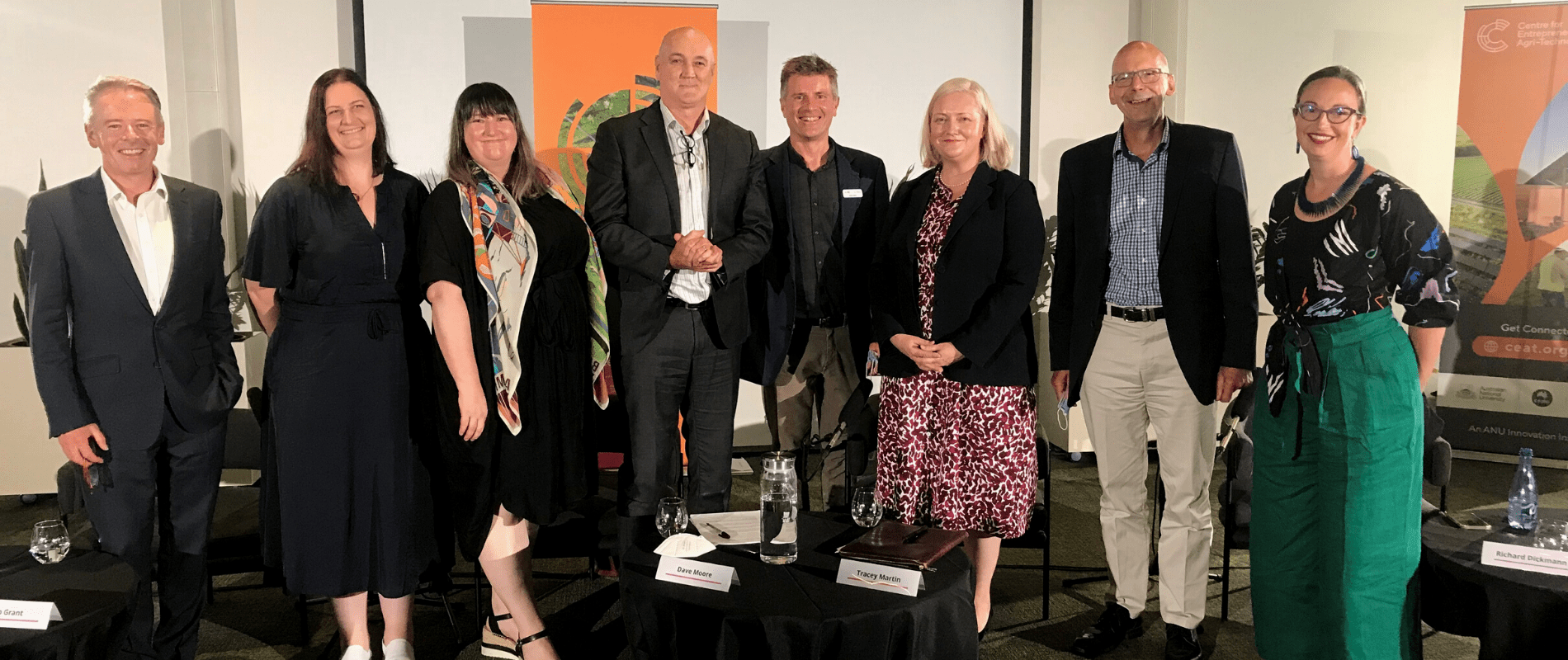By Pia Cunningham, contributions from Denise Higgins.

On Monday the 7th of March CEAT ran a panel discussion on the future of ag-innovation in the Birch Building on ANU campus, with a full sound and film crew recording. The panel had six members, each with different perspectives on the agtech system: Christine Mulhearn, Pip Grant, Dave Moore, Tracey Martin, Richard Dickmann, and Johanna Weaver, and was facilitated by Prof. Mark Kenny.
The event was a great opportunity to bring together Ag-Innovation representatives of contrasting perspectives and experience for a provocative discussion that will help identify opportunities and challenges for the next CEAT strategic planning session.
The session started with a pitch from each panellist on their view of current challenges in the Ag-Innovation ecosystem. This was followed by a whole panel discussion exploring these challenges, before moving to Q&A with the specially invited audience. After formal proceedings, all attendees were able to mingle and debrief over bites to eat.
Christine Mulhearn started the pitches with an emphasis on the importance of supply chains in modern agriculture, and how we could add value to Australian Products. Pip Grant also mentioned the impact of supply chains on farmers, then moved on to discuss start-ups and how RDCs can help increase their commercialisation. Dave Moore made a provocative statement that the state of the Australian Ag-Innovation system must change to enact any real innovation – he explained there are not enough funds supporting research translation and that there is no driving element in the chain. Tracey Martin then discussed the importance of government investing in the ag-tech industry and the need for the development of a roadmap. Following Tracey, Richard Dickmann described how a focus on the core strengths of Australian innovation internationally can increase commercialisation and help start-ups build quickly. Finally, Johanna Weaver argued that the success of the tech everyone had discussed is not just dependant on access, use and quality, but the policies and regulatory domains they function under.
We could have listened to the six panellists for days and not covered everything! But it was great to initiate thinking on the synergies among their perspectives. One throughline was the consensus that national leadership is required; and there was talk of a type of roadmap to guide innovation in the same direction. CEAT has the potential to bring these perspectives together and contribute to such a plan so that the future of ag-innovation in Australia can be directed for sustainable and productive progress.
A gap in the discussion was intergenerational issues, or the importance of these structures over time. While progress and innovation is important for the status quo, there was little said on what the Ag-Innovation system could contribute to the future, or what it would look like in 30 years. Dave Moore was particularly provocative in his pitch in saying that the current system simply does not cater to innovation and the ever-changing challenges that the future faces. He suggested a different model in which universities are able to take direct funding from outside sources and match their contribution for research. In such a system every member would “have skin in the game” which could allow greater productivity and success.
Regardless of what model is in place, changes need to be made. The Australian environment is changing rapidly, but we are not adapting with it, nor are we mitigating the impacts from climate change. While this discussion was exciting in the current innovation space, it showed that the road to sustainable agriculture for the future is still unclear. In particular, it highlighted that we need stronger leadership and policies to drive the process.
We are honoured to have hosted such a diverse and established panel, and equally curated audience of agriculture innovation thinkers. Thank you to Mark Kenny for facilitating discussion, to our panellists for sharing their perspective and knowledge, and to our audience for listening in and asking such thought-provoking questions. It shows a great deal of passion and care that everyone was able to come together for the discussion. It is invigorating for CEAT to have been reminded of the opportunities and shortcomings in the system, and we look forward to further discussions of the topic in our next planning session!
You can view the full discussion here.
